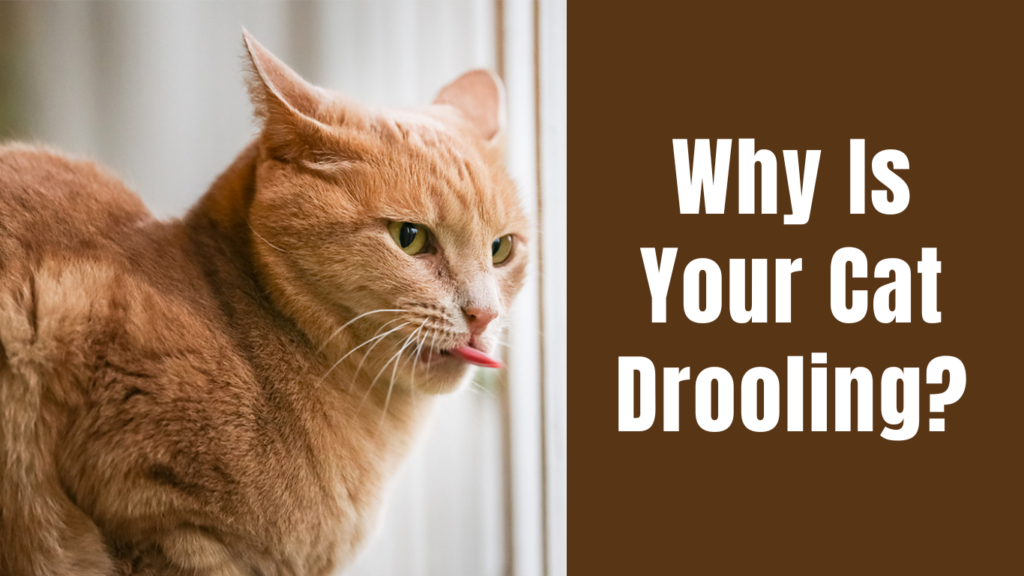While it’s normal for cats to drool occasionally, consistent or excessive drooling can signal an underlying issue. From dental problems to emotional triggers, understanding why your cat is drooling can help ensure their health and happiness. Here are some common reasons
1. Dental Problems
Cats often drool due to dental issues such as:
- Gingivitis: Inflamed gums can cause discomfort, leading to drooling.
- Tooth Abscesses: Infections in the teeth can trigger excessive salivation.
- Tartar Buildup: Plaque can irritate the gums and teeth, making drooling more likely.
What to Do: Schedule a vet visits for a dental check-up and regular teeth cleaning to prevent serious dental diseases.
2. Nausea or Upset Stomach
Cats may drool if they’re feeling nauseous, often due to:
- Motion sickness during car rides.
- Eating something unpleasant or toxic.
- Gastrointestinal issues like hairballs.
What to Do: If the drooling is accompanied by vomiting or lethargy, consult your vet immediately.
3. Foreign Objects in the Mouth
Something stuck in your cat’s mouth, such as a piece of string, a small toy, or plant material, can cause irritation and drooling.
What to Do: Gently check your cat’s mouth, but if you can’t safely remove the object or the drooling persists, seek veterinary help.
4. Poisoning or Toxins
Exposure to toxic substances like certain plants (e.g., lilies), chemicals, or medications can cause excessive drooling as a reaction.
What to Do: Contact your veterinarian or a pet poison helpline immediately if you suspect poisoning.
5. Emotional Triggers
Cats sometimes drool when they’re incredibly relaxed and content, such as during a good cuddle or while kneading. It’s a sign of their affection!
What to Do: No action is needed—just enjoy the bonding moment!
6. Heatstroke
Overheating can lead to drooling, especially in hot weather. Cats with thick coats or those confined in hot spaces are particularly at risk.
What to Do: Provide a cool environment and fresh water. If your cat shows additional signs like panting or lethargy, consult a vet immediately.
7. Oral Ulcers or Tumors
Oral sores, ulcers, or tumors can irritate the mouth and lead to excessive drooling. These conditions may also cause difficulty eating or noticeable swelling.
What to Do: Have your veterinarian examine your cat to identify and treat any underlying issues.
8. Respiratory Infections
Upper respiratory infections (URIs) can cause mouth or throat discomfort, resulting in drooling. You may notice other symptoms like sneezing, coughing, or nasal discharge.
What to Do: URIs often require veterinary treatment, including medications to help your cat recover.
9. Medication Side Effects
Some medications may cause drooling as a side effect, especially bitter-tasting ones that irritate the mouth.
What to Do: If you suspect a medication is causing your cat’s drooling, consult your vet for possible alternatives.
10. Feline Oral Resorptive Lesions (FORLs)
FORLs are painful dental conditions that can lead to excessive drooling. They are common in cats and often go unnoticed without a vet’s examination.
What to Do: Regular dental check-ups are essential for early detection and treatment.
When to See a Vet
While occasional drooling isn’t always a cause for concern, consult your veterinarian if:
- The drooling is excessive or persistent.
- It’s accompanied by other symptoms like vomiting, lethargy, or loss of appetite.
- You suspect poisoning or ingestion of a foreign object.
Understanding the reasons behind your cat’s drooling is key to keeping them healthy and comfortable. Whether it’s a simple sign of affection or a more serious health concern, being attentive to your cat’s behavior ensures they get the care they need.
Have you noticed your cat drooling before? Share your experiences in the comments!
